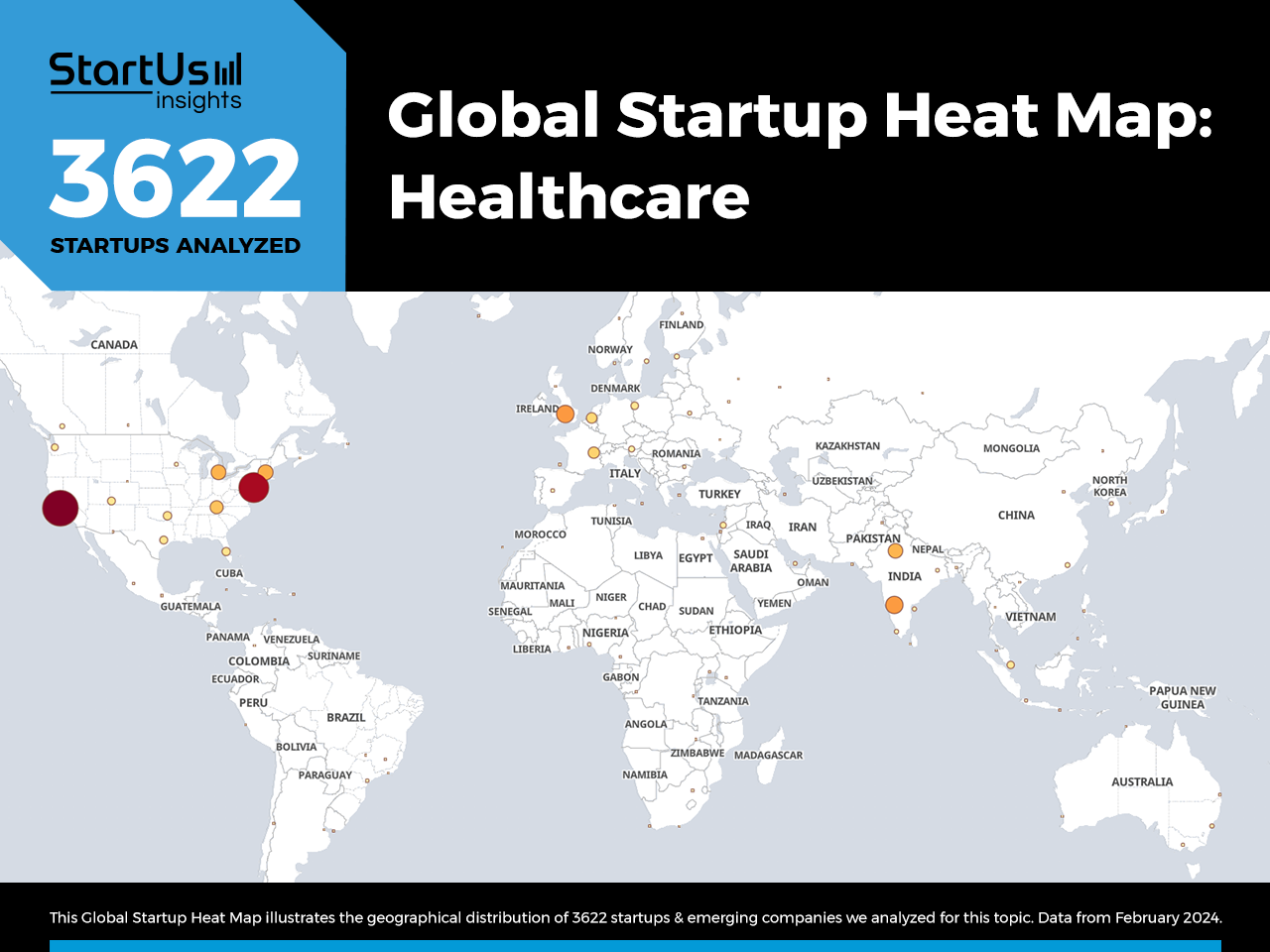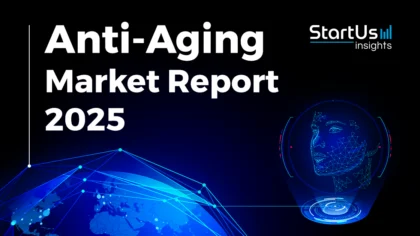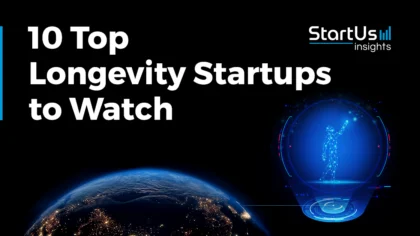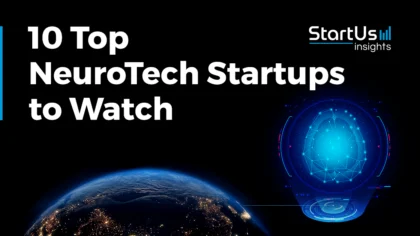Accelerate Productivity in 2025
Reignite Growth Despite the Global Slowdown
Healthcare trends that we witness today are new technologies and solutions that address the requirements for clinical diagnosis, treatment, and disease management. The global COVID-19 pandemic led to an upsurge in technologies for disinfecting, limiting transmission, and detecting disease spread, as well as for treatment, patient management, and immunization. Healthcare innovations range from e-consultations, telemedicine, and real-time diagnosis to accessing digital therapeutics provided by immersion technology tools.
Technology advancements in healthcare like genetic analysis, clinical data storage, and big data and analytics enable the development of precision medicine. Startups customize treatment planning and execution for individual patients using real-time, remote monitoring devices. The adoption of artificial intelligence (AI), the Internet of Things (IoT), and data management practices is making hospitals smarter. These solutions enhance workflows and staff scheduling and provide connected infrastructure, devices, and systems to accelerate accurate and equitable clinical services.
This article was published in February 2021 and updated in February 2024.
What are Current Trends in Healthcare (2024)?
- Artificial Intelligence
- Internet of Medical Things
- Telemedicine
- Big Data & Analytics
- Immersive Technology
- Mobile Health
- 3D Printing
- Blockchain
- Cloud Computing
- Genomics
Innovation Map outlines the Top 10 Healthcare Trends & 20 Promising Startups
For this in-depth research on the Top Trends in Healthcare, we analyzed a sample of 3622 global startups & scaleups. This data-driven research provides innovation intelligence that helps you improve strategic decision-making by giving you an overview of emerging technologies in healthcare technology. In the Healthcare Industry Innovation Map, you get a comprehensive overview of the innovation trends & startups that impact your company.
These insights are derived by working with our Big Data & Artificial Intelligence-powered StartUs Insights Discovery Platform, covering 4.7M+ startups & scaleups globally. As the world’s largest resource for data on emerging companies, the SaaS platform enables you to identify relevant technologies and industry trends quickly & exhaustively.
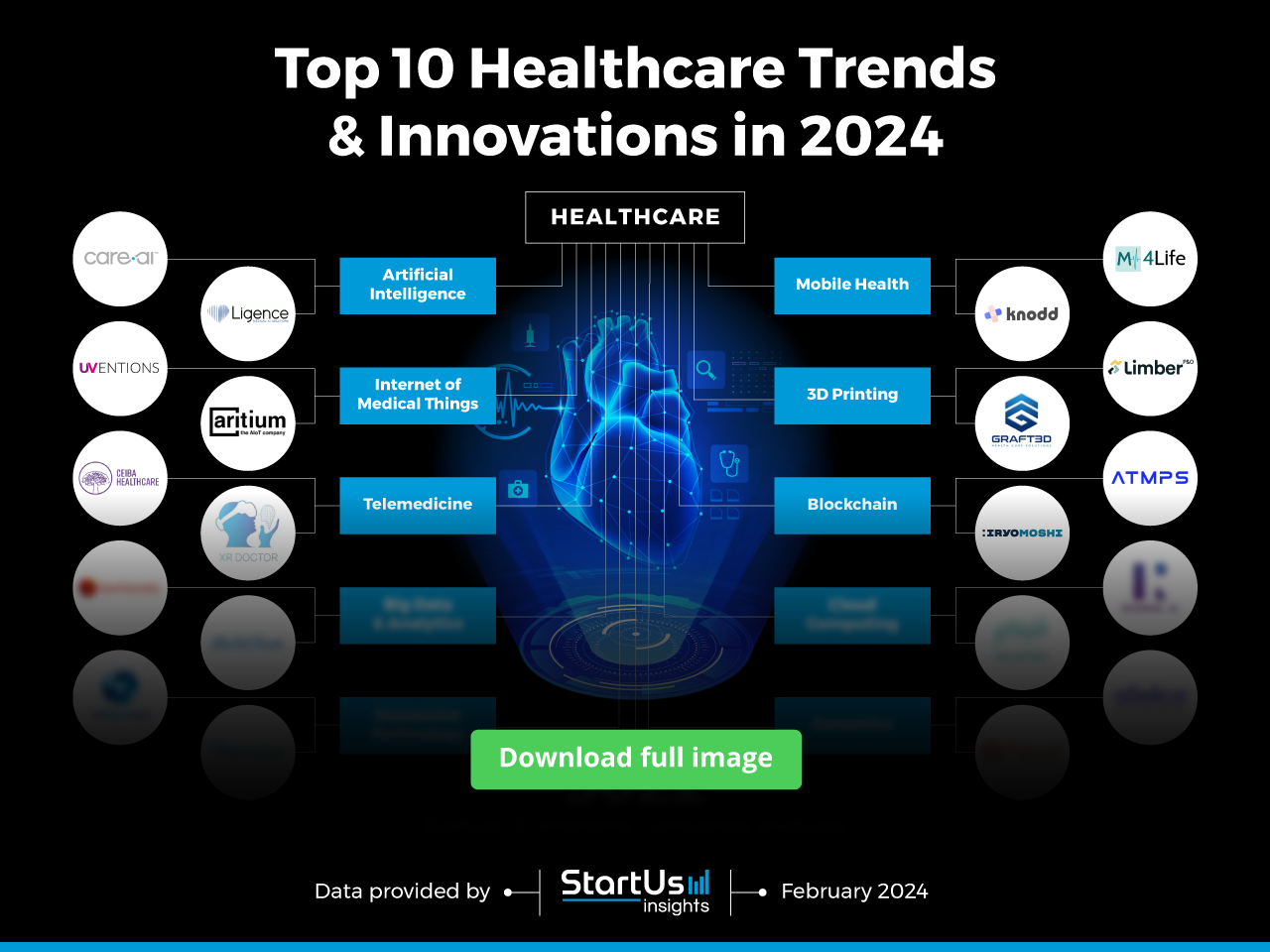
Tree Map reveals the Impact of the Top 10 Current Trends in Healthcare
Based on the Healthcare Innovation Map, the Tree Map below illustrates the impact of the Top 10 Healthcare Technology Trends in 2024. Healthcare information technologies like AI and the Internet of Medical Things (IoMT) enable real-time, continuous, and remote monitoring of patients. Telemedicine solutions enhance accessibility to clinical services for patients unable to visit hospitals frequently.
Big data and analytics solutions process structured and unstructured medical data and biomedical literature to generate novel insights. Virtual reality (VR), augmented reality (AR), and mixed reality (MR) allow MedTech startups to develop enhanced digital therapy experiences. 3D Printing, particularly bioprinting, enables the development of quality prosthetics and organ transplants while reducing the risk of graft rejection.
With the growth of digitization in healthcare, blockchain, and cloud computing technologies play a major role in clinical data collection, storage, and exchange. Lastly, developments in genomics, nanomedicine, and regenerative medicine are advancing personalized healthcare. These trends in the healthcare industry improve overall productivity and patient care.
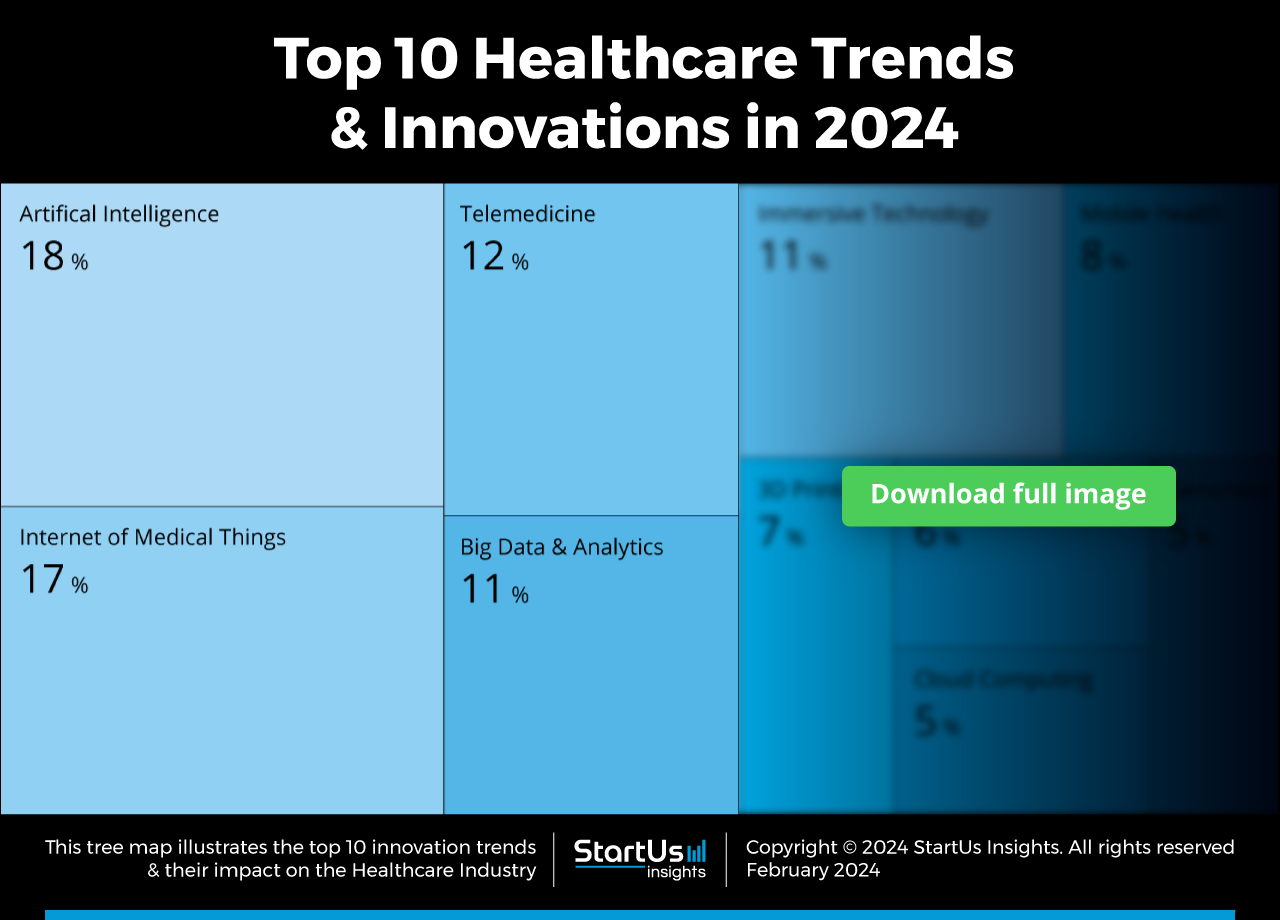
Global Startup Heat Map covers 3622 Healthcare Startups & Scaleups
The Global Startup Heat Map below highlights the global distribution of the 3622 exemplary startups & scaleups that we analyzed for this research. Created through the StartUs Insights Discovery Platform, the Heat Map reveals high startup activity in the US, followed by India and Western Europe.
Below, you get to meet 20 out of these 3622 promising startups & scaleups as well as the solutions they develop. These HealthTech startups are hand-picked based on criteria such as founding year, location, funding raised, & more. Depending on your specific needs, your top picks might look entirely different.
Interested to explore all 3600+ healthcare startups & scaleups?
Top 10 Technology Trends in Healthcare (2024)
1. Healthcare AI
AI is advancing the healthcare industry by replacing traditional, labor-intensive processes with swift, remote, and real-time solutions for diagnosis, treatment, and disease prevention. HealthTech startups are developing software platforms, APIs, and digital products to harness AI’s potential. Key applications include clinical workflow management, where AI streamlines patient care coordination and administrative tasks.
In advanced surgery assistance, AI provides precision guidance, enhancing surgical outcomes. Additionally, AI plays a crucial role in medical diagnostics, using algorithms to analyze complex medical data for accurate and early disease detection, significantly improving patient care. As a result, the AI in healthcare market is estimated to reach USD 148.4 billion by 2029, registering a CAGR of 42.4% from 2024-2019.
Care AI provides Autonomous Patient Monitoring
Care AI is a US-based startup offering an AI-powered autonomous patient monitoring platform. The startup’s platform connects to the proprietary edge sensors and transforms ordinary rooms into Self-Aware Rooms.
The platform increases patient safety, reduces medical errors, and improves the quality of care and clinical efficiency. It finds applications in monitoring hand sanitation, in-bed patient monitoring to prevent falls, and prediction of pressure ulcers, tremors, and other risks.
Ligence develops an Image Analysis tool
Ligence is a Lithuanian HealthTech startup that develops tools for cardiac risk diagnosis and measuring tools. The startup develops CardioEchoAI, a heart ultrasound image analysis tool. It uses deep learning algorithms to mimic steps performed by a cardiologist during a regular heart ultrasound examination, speeding up the analysis of 2D transthoracic echocardiography (TTE).
The startup’s automated heart ultrasound imaging workflow reduces the average examination time from 30 to 5 min, as well as increases the overall accuracy and diagnosis.
2. Internet of Medical Things
IoMT is instrumental in the development of products that need less or no human interaction to provide healthcare services. Connected medical devices, equipment, and infrastructure facilitate applications such as automatic disinfection, smart diagnosis, and remote patient management. Wearable health monitors, for example, track vital signs and transmit data for real-time analysis.
Smart pills with sensors provide insights into patient medication adherence and internal health metrics. Cognitive IoMT (CIoMT) represents a recent subtrend, combining sensory information and automated processing for real-time diagnosis, monitoring, and disease control, all communicated through networks. These technologies are revolutionizing healthcare delivery with minimal human intervention.
Uventions provides Automated Disinfection
German startup Uventions develops solutions for automated disinfection of surfaces and infrastructure. The startup offers multiple products for the disinfection of air in the room, door handles, objects, surfaces, and handrails. These solutions are easy to install in settings like hospitals, clinics, offices, airports, hotels, and even cruise ships.
The system detects the presence of people in a room or door handle usage and automatically disinfects using ultraviolet C (UV-C) light radiation. The solution documents the disinfection process and reports in real time through a dashboard.
Aritium Technologies aids in Operations Optimization for Hospitals
Aritium Technologies is a Spanish startup that optimizes hospital and health center operations. It leverages artificial intelligence of things (AIoT) to connect personnel and materials. This way, the startup’s solution monitors asset statuses, hospital environments, and patient conditions.
The parameters that Aritium Technologies’ solution monitors include respirators, electromedical equipment, air quality, location, and patient vital signs. This connected approach provides healthcare institutions with a granular view of their assets and patients. Consequently, it maximizes asset utilization and improves patient care.
3. Telemedicine
The COVID-19 pandemic accelerated the adoption of telemedicine by many governments, healthcare systems, clinicians, and patients. To tackle the pandemic, governments issued telemedicine guidelines to decongest healthcare facilities. Telemedicine minimizes the load on facilities and reduces the use of personal protective equipment (PPE) as medical practitioners reach their patients via telecommunication.
Virtual consultations enable patients to receive medical advice remotely, reducing the need for physical clinic visits. Wearable health monitoring devices continuously track vital signs and transmit data to healthcare providers for real-time monitoring. Additionally, AI-powered diagnostic tools in telemedicine platforms offer quick and accurate analysis of patient data, aiding in early disease detection and treatment planning.
These technologies collectively improve patient care, increase healthcare accessibility, and streamline medical processes. Consequently, the telehealth and telemedicine market is projected to grow from USD 94.44 billion in 2023 to USD 286.22 billion by 2030, at a CAGR of 23.2%.
Ceiba develops a Tele-Intensive Care Unit (Tele-ICU) platform
Ceiba, a Turkish startup, provides a tele-ICU platform. The platform offers a fully customizable proprietary dashboard, providing a snapshot of all ICU patients and beds to relay time-critical information demonstrating their need for care.
The platform provides AI-based predictive alerts for sepsis, mortality, length of stay, early warning patient deterioration, acuity level scoring, automated doctor progress notes, and nurse notes. Moreover, the solution is easy to integrate with any electronic health record (EHR) platform.
XR Doctor enables Telesurgery & Remote Diagnostics
UK-based startup XR Doctor offers solutions for telesurgery and remote diagnostics & therapy. Its telesurgery tools allow surgeons to remotely consult, plan, and execute surgical procedures using holograms, connecting them to the operation from afar.
On the other hand, the solutions for remote diagnostics and therapy remotely connect patients with physicians for diagnostics and treatment through augmented reality glasses and holograms of affected organs. These technologies enable precise planning, execution, and post-operative care, bridging geographical gaps in healthcare.
4. Big Data & Healthcare Analytics
The volume of health and medical data is expected to increase exponentially in the coming years. MedTech startups leverage big data in healthcare and advanced analytics to analyze unstructured and huge volumes of medical data. Predictive analytics tools analyze vast medical datasets to identify disease patterns, enabling early diagnosis and personalized treatment plans.
Electronic health records (EHRs) integrate and analyze patient data across various healthcare systems, improving care coordination and patient outcomes. Moroever, AI-driven platforms analyze unstructured medical data, offering new insights into disease mechanisms and enhancing treatment methods. These technologies collectively facilitate improved patient services, disease detection, and process quality monitoring in healthcare institutions, driven by the exponential growth in medical data.
InnVentis manages Chronic Inflammatory Diseases
Israeli healthcare data analytics startup InnVentis utilizes big data and machine learning to provide solutions for diagnostics, monitoring, and therapeutic decisions on major chronic inflammatory diseases. The startup’s platform combines high-quality data with advanced algorithms to generate actionable insights for diagnostics and disease/health management of inflammatory diseases.
The startup also provides products and services for discovering drugs for rheumatoid arthritis (RA). The startup plans to extend its platform to other inflammatory conditions like asthma, multiple sclerosis, and colitis.
MediChain enables secure Medical Data Exchange
MediChain is a British startup offering a decentralized platform for the secure, fast, and transparent exchange and usage of medical data. The startup uses blockchain technology to securely store health records. It provides access to a patient’s record to doctors, hospitals, laboratories, pharmacists, and health insurers while recording transactions on the distributed ledger.
5. Immersive Technology
Immersive technologies, including AR/VR and MR, are becoming increasingly prevalent in the healthcare sector. VR applications range from rehabilitation therapy for cognitive and physical disorders to exposure therapy for anxiety disorders. In medical education, AR/VR is crucial for providing interactive and realistic training experiences.
Additionally, these technologies are transforming surgery, allowing for the perioperative projection of patient information, holographic images, and scans, thereby enhancing precision and efficiency. These immersive tools are revolutionizing healthcare by improving treatment outcomes, education, and surgical procedures.
VRSANO develops a Brain-Computer Interface
VRSANO is a US-based MedTech startup that develops a brain-computer interface. Its technology combines VR, neurofeedback, and clinical hypnosis principles to optimize health outcomes. The startup’s patented method pulls medical patients out of a state of distress by immersing them in a relaxing virtual world.
It induces a psychophysiological state that helps patients with their mental health needs. The platform alleviates symptoms and improves long-term patient outcomes while lowering healthcare costs.
Rescape Innovation suports Patient Care
British startup Rescape Innovation develops immersive technologies to support patient care in both adults and children. The startup specializes in virtual reality (VR) distraction therapy to support pain and anxiety/stress management.
The solution offers cystic fibrosis (CF) patients to view therapeutic documentaries, wherein they can travel among the planets in the solar system or experience surfing, skydiving, and other adrenaline-fueled activities. The startup’s interventions reduce anxiety in patients.

6. Mobile Health (mHealth)
mHealth technologies provide access to personalized information using digital solutions and connected devices. Mobile devices enable visualization of health issues that prevent patient commitment. Unconstrained by geographical boundaries and using real-time data streams, smartphone-linked wearable sensors, point-of-need diagnostic devices, and medical-grade imaging make healthcare delivery more equitable and accessible.
mHealth solutions played a critical role in controlling the spread of the COVID-19 pandemic by enabling contact tracing, surveillance, quarantine control and management, testing, and dissemination of relevant information, as well as immunization cycle tracking and notification.
M4Life develops Blockchain-based mHealth platform
M4Life is an Israeli startup developing a mobile health platform. The startup provides a simplified and smooth patient/caregiver relationship, allowing information traceability inside the mHealth care chain.
The startup’s platform uses a blockchain-based architecture to share prescriptions, diagnostic images, medical certificates, and patient consent. Moreover, it offers a telemedicine interface for communication between patients and physicians.
Knodd provides E-Consultation services
Swedish startup Knodd provides a platform for e-consultation with pediatricians. The startup’s platform offers video calls to experienced pediatric nurses and pediatricians with more than 5 years of experience, providing safe answers about children’s health within minutes, free of charge from anywhere. The platform also has digital courses on parenting and child care.
7. 3D Printing in Healthcare
3D printing is gaining traction in the healthcare industry for multiple applications like printing lightweight prosthetics, bionics, and casts for fracture repair. The use of inexpensive, lightweight biomaterials and smart materials ensures improvement in care delivery and time of production while reducing costs.
3D printing technologies are advancing the development of patient-specific models of organs and surgical tools, using the patient’s own medical imaging. Another area of application includes personalized surgical instruments that increase a surgeon’s dexterity and support better surgery outcomes while facilitating faster and less traumatic procedures.
LIMBER provides 3D-printed Prosthetic Legs
US-based startup LIMBER makes a prosthetic leg, UniLeg. Unlike traditional prosthetics, which often require manual fabrication and assembly, the UniLeg is created as a single piece using industrial 3D printing technology. This allows for a highly personalized fit catering to the specific needs and measurements of each user.
The design of the product is also dynamic, ensuring a more natural and comfortable movement for the wearer. The 3D printing process not only enhances the precision and comfort of the prosthetic but also speeds up production, allowing patients to receive their custom prosthetics more quickly.
Graft3D assists in Surgery Planning
Indian MedTech startup Graft3D provides a solution for surgery planning and execution. It utilizes radiological-assisted 3D Model (RAM) technology to visualize a patient’s anatomy prior to surgery. The startup’s Virtual Surgical Platform (VSP) assists doctors in predetermining surgical cuts.
The startup designs patient-specific implants (PSI) with informed evidence from nearly 100 successive case studies on complex surgeries. It uses a haptic device that allows doctors or surgeons to sense the bone’s consistency.
8. Blockchain
The security and traceability of blockchain make the technology suitable for multiple applications in the healthcare industry. Some of these include electronic medical records, remote patient monitoring, pharmaceutical supply chain, and health insurance claims.
Blockchain in healthcare supports the management of EHRs and FHIRChain (Fast Health Interoperability Records) for sharing clinical data. It also plays an important role in smart contracts, tackling drug counterfeiting, as well as storing, sharing, and retrieving remotely collected biomedical data.
ATMPS enables Blockchain-powered Medicine Data Protection
ATMPS is an Indian startup that develops Hataali, a blockchain-powered platform for personalized medicine. It utilizes distributed ledger technology to create permanent digital records of the full chain of custody, chain of identity, and chain of condition. The data is encrypted through hashing and thus ensures data compliance.
The startup’s platform allows personalized medicine companies to ensure a transparent supply chain. This improves collaboration between all stakeholders while ensuring efficient treatment development, optimizing costs, and improving access to medical data.
Iryo Moshi provides a Practice Management tool
Slovenian startup Iryo Moshi provides a modern practice management tool for private healthcare providers. The startup specializes in blockchain, interoperability, open EMR, and consumer relationship management (CRM) areas, and provides an integrated digital healthcare platform.
The platform features automated appointments, invoicing, clinical data storage and management, and digital documents and forms. The solution is cloud-connected and also is compliant with General Data Protection Regulation (GDPR) and Health Insurance Portability and Accountability Act (HIPAA).
9. Cloud Computing and Healthcare
Cloud computing allows clinicians to establish quality patient journeys supported by tech-enabled care delivery via telehealth and remote monitoring. It allows for greater storage capabilities and processing power for data analytics and eliminates the need for on-premise storage.
Cloud platforms integrate network, security, billing, monitoring, and alerts, together with access and identity management. It also provides streamlined data access, data storage and management, data backup and recovery, smart data potential, and data interoperability, among others.
Radmol AI improves Access to Healthcare
Irish startup Radmol AI utilizes the latest advancements in cloud computing, data analytics, blockchain, and AI-based technology. It provides a platform for connecting patients and healthcare providers to local and global expert radiologists on demand.
The startup’s technology enables accessing reports from anywhere, at any time. It creates solutions that democratize access to healthcare, enabling patients, physicians, and providers.
Medified offers Mental Health Monitoring
Finnish startup Medified provides cloud-based dynamic mental health monitoring software. The software as a service (SaaS) platform aids physicians to monitor patients in real-time, helping patients get the right treatment faster.
The software analyzes clinical data and provides valuable clinical insights, enabling remote, digital healthcare services with an interactive dashboard. It allows patients to capture and communicate daily mood and well-being to provide healthcare professionals with self-treatment information in real-time.
10. Genomics
There have been notable efforts in developing genomics tools for various applications in recent times. Gene therapy, a notable example, offers targeted treatments for genetic disorders, revolutionizing clinical medicine. Next-generation sequencing technologies enable rapid, cost-effective analysis of genetic information, facilitating personalized treatment plans.
Additionally, CRISPR-Cas9 gene editing technology allows precise modifications in DNA sequences, opening new avenues for treating a range of diseases. These advancements integrate genomic knowledge into clinical workflows, enhancing physician communication and providing actionable insights from genomic tests, addressing various unmet clinical needs.
Allelica performs Genomic Risk Prediction
Italian startup Allelica predicts human traits and diseases based on genomics data. The startup’s proprietary platform performs genomic risk prediction based on polygenic risk scores (PRSs). Allelica’s technology uses machine learning algorithms to accelerate clinical genomics for applications in precision medicine.
The startup’s solution identifies individuals with a high genetic liability for cancers and heart diseases who are unidentified by traditional risk models.
Nest Genomics makes a Genomic Data Platform
Nest Genomics is a US-based startup that develops a lab-agnostic software solution for implementing genomic programs at scale. It is available across multiple specialties like cardiology, cancer, pharmacogenetics, pediatrics, and ophthalmology.
The platform offers healthcare providers EHR-integrated clinical decision support (CDS) based on clinical guidelines. Its population dashboard enables health systems to engage patients more effectively. Further, the platform allows patients to leverage personalized care plans to manage disease risks.
Discover all Future Trends in Healthcare
The Healthcare Industry Trends and Startups outlined in this report only scratch the surface of trends that we identified during our in-depth research. Among others, robotics, 5G, and stem cell therapy will transform the sector as we know it today. Advancements like autonomous drones will be increasingly used for rapid delivery services, streamlining logistics & supply chain management.
Meanwhile, advancements in 5G technology will improve real-time, remote medical diagnostics and treatment, significantly enhancing healthcare accessibility and efficiency. Lastly, steam cell therapies are set to offer breakthrough treatments in regenerating damaged tissues and organs, notably in conditions like Parkinson’s and heart diseases.
Identifying new opportunities and emerging healthcare technology trends to implement into your business early on goes a long way in gaining a competitive advantage. Get in touch to easily and exhaustively scout relevant technologies and startups that matter to you.
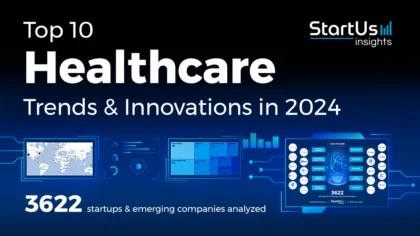
 WATCH THE VIDEO VERSION
WATCH THE VIDEO VERSION 